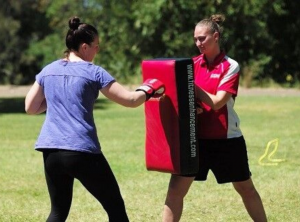Personal training insurance is critical if you’re a Personal Trainer in Australia. Most of the time, gyms will require their own ABN, and contractors should purchase coverage for themselves. Essentially, liability insurance for Personal Trainers is essential to being fully protected while working out at a client’s location. If you are an employee of a gym or personal training company, your insurance will be paid for. For Personal Trainers who work with clients daily and are often outside in high-risk situations, accidents can happen, so doing your research before getting any kind of insurance is advised. Here are some key things to look out for to ensure you are protecting yourself.
How much Personal Trainer insurance coverage do you need?

When you become a Personal Trainer, one of the first things that may come to mind is insurance. But how much do we really need for our own protection and that of those who may be interested in taking up training with you too? Take advice from your insurance companies as to how much coverage you would need. The two most common insurance companies in the fitness industry are Guild Insurance and Marsh Insurance.
Guild Insurance Personal Trainer
Guild policy is broad and includes $5 million in professional indemnity, $10 or 20 million in public liability, $10 or 20 million in product liability, and $100k in property in your care cover. Depending on the estimated turnover and level of insurance coverage, annual premiums for a $20,000,000 level of insurance coverage with Guild Insurance are $ 510.58.
Marsh Insurance Personal Trainer
Marsh, on the other hand, covers $10 million in public liability cover, $10 million in product liability cover, and $10 million in professional indemnity cover. Marsh’s Fitness professionals’ average annual premium is $186.85. Aside from Guild and Marsh Insurance, however, there are more varieties of personal training insurance policies from other companies.
It’s not all about the insurance price.
While price is an important factor when it comes to choosing insurance, it should not be the only factor. Different policies offer different levels of coverage, which are worth considering when selecting. Before committing yourself to a policy, make sure you read through the text and understand exactly what you are covered for and what is excluded. At its core, insurance should be something we can rely on in times of need. It’s difficult to trust if you don’t know what your policy covers. So don’t just settle for cheap; instead, look for good coverage at a fair price.
Fitness Australia Insurance
For many fitness professionals, dealing with insurance can be a daunting process. Unlike other types of businesses, where you may only need public liability insurance and maybe some product cover, fitness requires additional professional indemnity insurance to make sure you are covered for any potential financial damages. Fortunately, Fitness Australia (which has recently changed its name to AUSactive) has an answer. As long as you’re registered with Fitness Australia, you are eligible to receive some incentives, such as their mix of specialist covers tailored for fitness professionals. Fitness Australia insurance is separate from your Fitness Australia registration. Fitness Australia currently recommends the Guild or Marsh. Note that you are no longer required to have your insurance policy with Fitness Australia if you take out your policy with Guild or Marsh. As a Personal Trainer with Fitness Australia (now called AUSactive), your CECs are also separate. Many insurance companies, however, will not require you to have CEC or Fitness Australia registration. On the other hand, we, at Fitness Enhancement, strongly recommend that all Personal Trainers be registered with Fitness Australia (now called AUSactive), our governing body, as Fitness Australia’s membership program offers countless benefits to its members.
Insurance only works if it’s within your scope
It’s all well to have an insurance policy. However, you need to ensure you are working within your scope so if the worst happens, you are covered. Here are the top 7 reasons that Personal Trainers tend to not have insurance coverage that they think they do.
Does personal training insurance really matter?
Personal trainers who are not covered by insurance may find themselves being sued for damages. This is a scary prospect considering the implications of what could happen here, from both an actual accident or simply someone trying to blame you in some way after the session ended with no resolution between parties involved, which may leave you financially ruined. Unfortunately, anyone has the right to sue you, even if they’ve signed an insurance disclaimer. If you do not have an insurance policy that covers you, you will be sued directly. Furthermore, the cost of a million-dollar lawsuit is nothing compared to the risk if you don’t protect yourself. The best way is to take out adequate insurance so that your family will be financially secure. When it comes to protecting yourself and those around you, one critical step to take is having adequate insurance coverage.
Personal training insurance is part of helping people. Hence, it’s important for Personal Trainers to make sure clients not only receive compensation but also feel secure knowing they are protected no matter where or why something goes awry. Essentially, this can be a good selling point to your client as well—that you’re very well insured and know that there’s good coverage there.
In summary, when it comes to starting a personal training business, it is important to think about the range of potential risks you could be exposed to. Getting insurance is an essential step for any serious trainer. But don’t just get your personal training insurance; do your research to check that you are adequately covered and are protecting yourself, your business, your clients, and your loved ones who would be affected by the worst happening.



